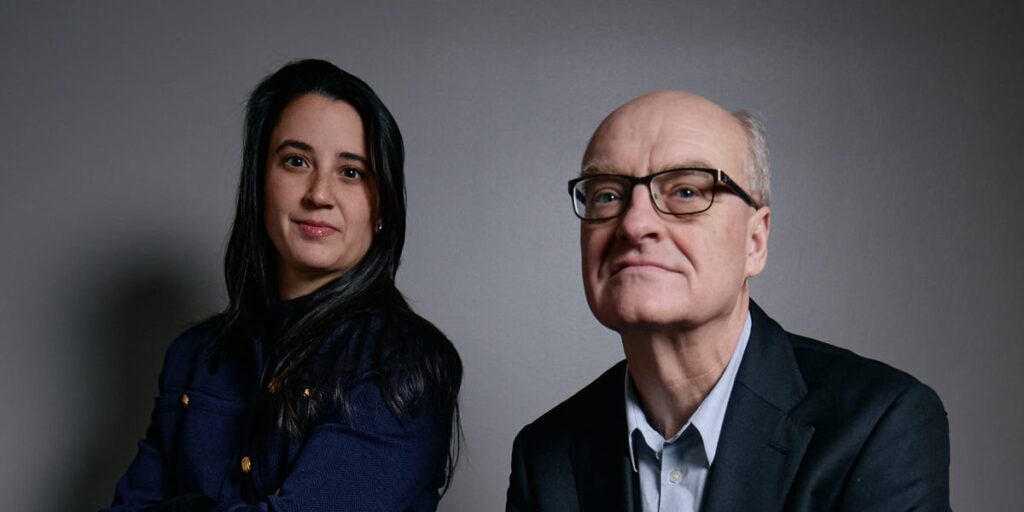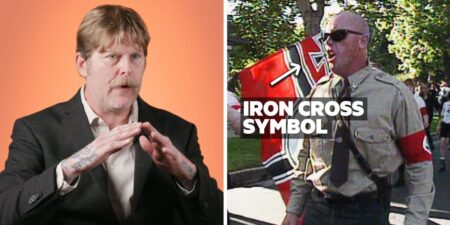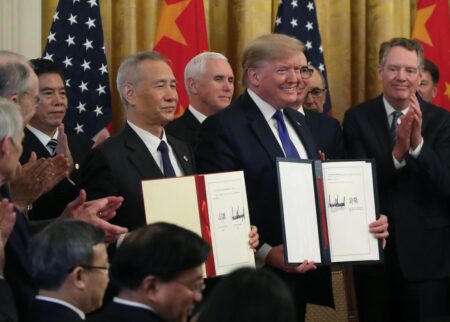One of the most interesting asset managers in Europe has made it to America.
Lingotto Investment Management, with $6 billion in assets under management, has generated plenty of intrigue in its short existence. It was formed in 2023 by Exor, the holding company for the wealth of the Agnelli family, which owns Fiat, Ferrari, The Economist, and the Italian soccer team Juventus.
Lingotto launched as an investment house giving tenured portfolio managers a sleeve of capital and free range to invest — some bets include a private German robotics company and CBS’s parent company, Paramount. The firm, which was founded by the billionaire Agnelli heir John Elkann and whose chair is former UK Chancellor of the Exchequer George Osborne, has raised billions in outside capital and is operated separately from Exor.
Now the manager is expanding to New York, where it already has 14 employees, including investing talent, on the ground. The 50-person firm, based in London, considers New York and London to be its “two pillars,” Enrico Vellano, Lingotto’s CEO, said in an interview with Business Insider.
“The idea is to continue to grow and invest in the US but also in the UK,” he said.
The firm has lured in James Anderson, a star tech investor and former Baillie Gifford partner, and BlackRock executive Pam Chan to run different strategies. Matteo Scolari and Nikhil Srinivasan, two longtime Exor-connected investors, manage their own books.
The investors’ focuses are across the board — limited-partner stakes in other funds, public tech companies, quirky private opportunities — and they can pursue their ideas on their own timelines, which can be yearslong, without constant tinkering from a central risk manager or overarching investment commitment. This proposition has been enticing to portfolio managers as well as prospective backers.
“Each team is empowered and very independent,” said Scolari, whose ties to the Agnelli family go back a generation to when his father worked as the head of research and development at Fiat decades ago. In an interview with BI, he said the structure set the firm apart.
“I think that’s really important — I really believe in this approach,” he added.
A different model
The firm doesn’t like the word “platform,” but it’s impossible to avoid comparisons between today’s dominant multistrategy managers and Lingotto. These platforms have become some of the biggest names in alternative investing, in part because they can absorb so much capital from sovereign wealth funds and pensions and diversify it across dozens of investing teams.
The industry’s biggest investors prefer multistrategy funds because of their consistency and lack of volatility, which they achieve through tight risk limits and short-term investment horizons.
Lingotto employs multiple investors who operate quasi-independently of each other, like Citadel and Millennium. But the similarities between Lingotto and the biggest hedge funds end there.
At Lingotto, the ultimate authority over its four strategies lies with the heads of said strategies. There’s no firmwide chief investment officer but four different CIOs.
“I really liked the idea of the autonomy,” Anderson said in an interview with BI. He runs the firm’s $700 million innovation strategy alongside Morgan Samet, the strategy’s cohead who used to work for the value-investment shop Pzena and the private-equity firm THL.
The innovation team plans to invest in companies across their life cycle, including when they are private, and hold them through volatile patches.
“You need to be prepared to suffer,” said Anderson, who was an early investor in Tesla and Amazon and a big believer in Nvidia’s potential.
“Where we earn our returns is by being supporters of these companies during their downturns,” he added.
The long-term nature of the firm’s capital, thanks to Exor’s role in the formation of the company, allows Anderson and Samet — and the firm’s three other strategy heads — to worry less about short-term gains and more about long-term ideas.
“We’re not scared of volatility,” Samet said.
“We see that as more of an opportunity, ” she added.
Agnelli, through and through
While the firm wants to be viewed as more than just the investment arm of the Agnelli family — and already has outside capital from the French insurer Covéa — Lingotto is the brainchild of Elkann, the billionaire heir.
In a public letter after the firm launched, Elkann quoted the 18th-century philosopher Adam Smith to stress how his family would be investing alongside any outside capital.
“Above all, we think and act as principals rather than agents,” he wrote. Lingotto, named after an iconic Fiat factory in Turin, Italy, with a rooftop test track that began operations in 1923, plans to grow through “performance rather than capital inflows,” he added.
Lingotto
Show less
Taurat Hossain for BI
Show less
The first to run strategies for the firm were a pair of longtime family connections, Scolari and Srinivasan, who now run the intersection and horizon strategies, respectively. Scolari previously worked for Eton Park, the now shuttered hedge fund founded by the former Goldman Sachs partner Eric Mindich, and has run money for the Agnelli family since 2014.
Srinivasan, meanwhile, was the chief investment officer at Allianz Investment Management and an HPS partner before joining Exor in 2018.
The pair have very different strategies — Scolari runs a concentrated book of public equity longs and shorts, while Srinivasan manages a portfolio of other funds as well as direct investments into private companies — but similar experiences working at the firm.
Without the pressures of managing a business, the two chief investment officers can focus on their main job: investing.
“You have a pool of capital, you have trust from the LPs and GPs, and you have clarity for what you’re supposed to be doing from an investment point of view,” said Srinivasan, who invests in companies around the globe and spoke with BI from Singapore.
“The stresses created are our own stresses,” he added.
People-focused buildout
With the firm’s momentum and burgeoning reputation, it might seem like the next step would be a significant hiring spree to grow the ranks even further.
While Lingotto’s leaders are always looking for top people, Vellano said the firm wanted the right people for the structure, not just more people.
Chan, a former BlackRock private-markets executive, is an example.
Chan, who is based in New York and runs the mosaic strategy, said her portfolio was focused on the parts of the private markets that don’t fit neatly into the buckets of the biggest private-asset managers. Right now, for example, she’s got her eyes on the content industry, including nontraditional players like YouTube creators.
“Novelty is a big part of what we do,” she said. She was early into the music-rights business, something massive asset managers like KKR have now gotten into. She focuses on areas where there’s a “capital demand-supply imbalance,” a time-intensive strategy that requires her and her team to scour the market for deals.
She said Lingotto’s structure gives her the bandwidth to do that by “allowing investors to invest.”
It fits neatly into Vellano’s vision.
“We will remain a boutique” that focuses on “quality investors and LPs,” he said, adding: “It’s important we have that alignment.”
Read the full article here
















